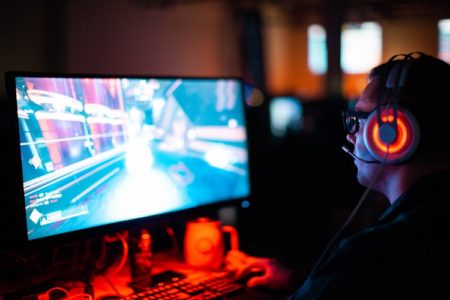Problems from Excessive Gaming. Now WHO adds Gaming Disorder in ICD-11

The World Health Organisation – WHO – has defined Gaming disorder in the ICD – 11 (the 11th Revision of the International Classification of Diseases).
This includes both digital gaming and video gaming, online or offline games that are accessed through gaming devices, consoles, computers, TV screens, tablets, or mobile devices etc.
It defines gaming disorder as a pattern of gaming behaviour where
– There is impaired control over gaming activities.
– Increasing priority given to gaming over other activities to the extent that gaming takes precedence over other interests and daily activities.
– Continuation or escalation of gaming despite the occurrence of negative consequences.
In 2013 when DSM V was published by American Psychiatric Association, though addiction to gaming was described, it was not defined as a unique mental disorder. However, it recognized internet gaming disorder in the section recommending conditions for further research.
What does this mean to us? The definition of gaming disorder or the addiction to gaming maybe considered to be controversial by some, especially by the gaming community and gaming industry. Still an understanding regarding this is significant for all of us and we all need to take notice.
Gaming as an entertainment or recreation for people, doesn’t create major damage, when used judiciously and age appropriately. It is true that the games are designed in such a way to keep the interest of the players alive. The games are designed with challenges at adequate levels for the players to win and feel good about it, at the same time not make it too difficult that players lose interest either.
The percentage of people who actually fall under the criteria for the gaming disorder might be low at this time, but if you fail to identify and address the indicators, you might face a lot more damage in your daily lives due to excessive gaming. And how does gaming for entertainment and recreation become unhealthy behaviour and move onwards to addiction? Why should we take note of this? What do we need to be aware of?
1. Excessive gaming is insidious.
When there is no control over the time that is spent or involvement on gaming, slowly and gradually you get more and more engaged in the game. Even when you are away, there is a preoccupation regarding the game. Slowly and gradually the game becomes very important for you, and other important aspects of your life start moving down the priority list. It proceeds in a gradual, subtle way, but clearly with harmful effects.
2. It damages the quality of your relationships.
The game might occupy all your free time, might influence the topic of conversations among your friends, might even influence who you interact with, who your friends circle are. The time that you can utilise to build new healthy relationships or to spend quality time with your partner / loved ones might be taken over by gaming.
3. It can become your unhealthy coping strategy.
Gaming can become an escape from all the other problems that you have in your life. When you are faced with problems you get involved into your game and you forget everything and this can become your coping strategy. The challenge is that the problems remain unresolved and just multiply.
4. You find yourself playing the game in inappropriate situations.
You might find yourself lying to your family members regarding how much time you are spending on the game. You find yourself having the urge to play the game or you actually play the game during school time or official meetings. You start finding social conversations boring and would rather play the game than engage with the person next to you.
5. Lower social connections.
Some people with less social connections may engage in excessive gaming to avoid boredom. But this in turn even further reduces possible engagements in real social settings and becomes a vicious cycle. This could also lead to other mental health problems like depression, anxiety etc or aggravate any existing conditions.
Left unchecked, over a period of time this can lead on to addiction, or gaming disorder with more severe consequences. Hence if you look at it, the damage to yourself, your family, your relationships, your work, education etc can start long before this becomes diagnosable as a disorder.
About the Author:
Kala Balasubramanian is a certified Counselling Psychologist/Psychotherapist with a Masters in Counselling and Psychotherapy, Diplomas in Counselling and has further certifications specializing in couple/marriage/relationship counselling and family counselling. As a professional counsellor she provides a supportive, understanding, professional and confidential environment to work with clients – Individuals and Couples explore their emotions, help them understand and manage their challenges, relationships and stress better.

I had written about this topic and the next day I saw this on the news. It is better to be aware and address this at earlier stages before it becomes an addiction.
https://www.vice.com/en_in/article/d3n4n7/a-16-year-old-in-india-died-after-playing-too-much-pubg
https://www.news18.com/news/buzz/pubg-tragedy-16-year-old-in-madhya-pradesh-dies-after-playing-game-for-6-hours-straight-2166197.html